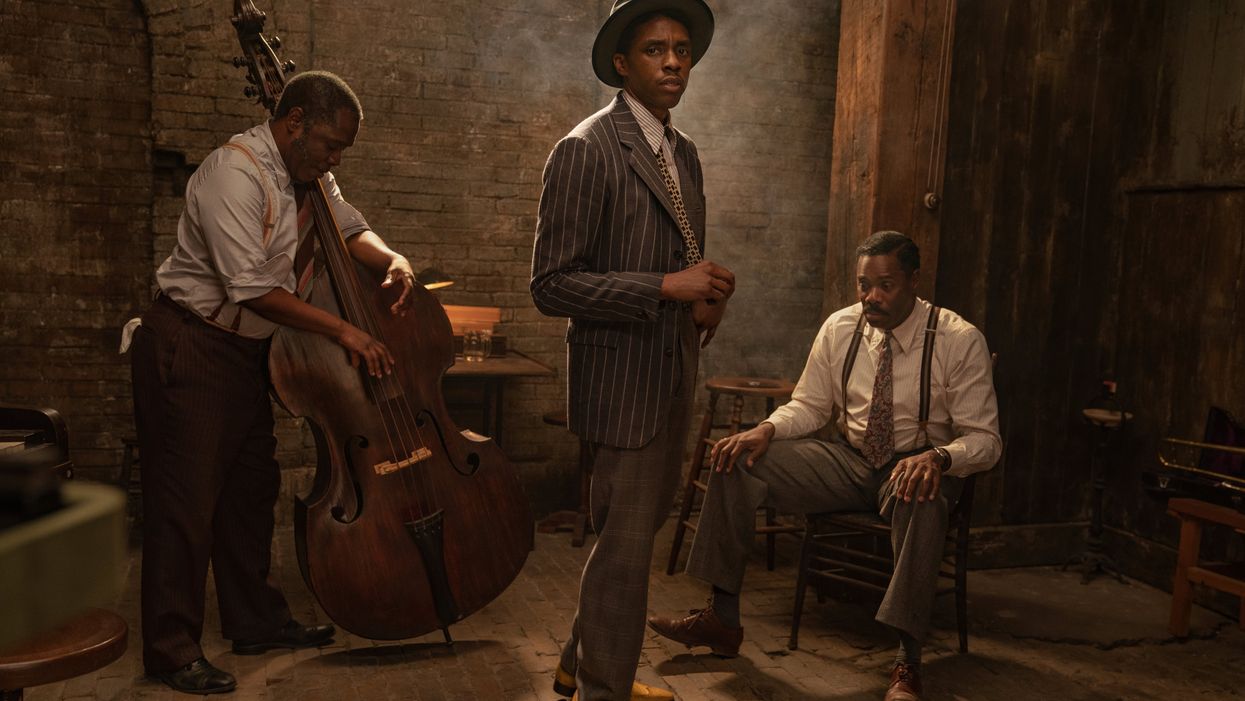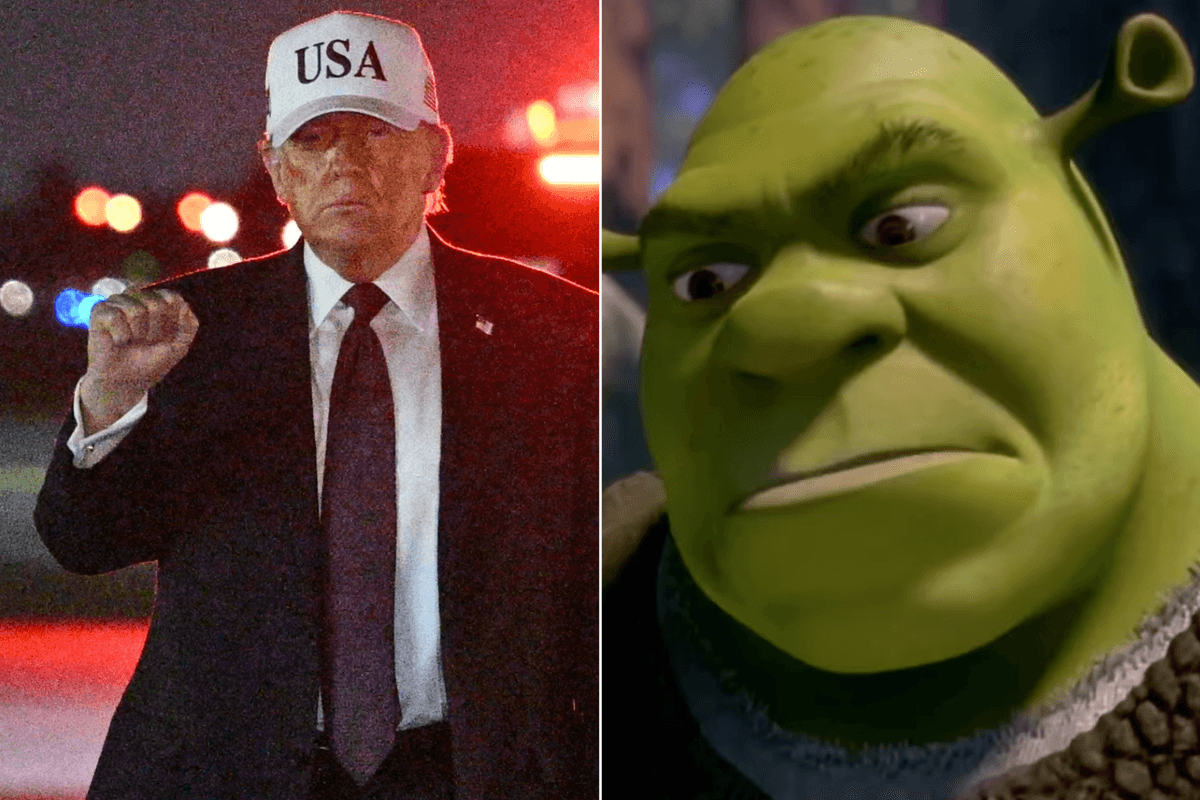Showbiz
Harriet Brewis
Mar 16, 2021
Chadwick Boseman has been nominated for best actor at this year’s Oscars, less than seven months after his death from cancer.
The Black Panther star joins the likes of Anthony Hopkins and Riz Ahmed in the top category for his breathtaking performance in Ma Rainey’s Black Bottom.
The accolade has made Boseman only the seventh man in the Academy Awards’ 93-year history to receive the best actor or best supporting actor nomination posthumously.
If he’s successful, he will join an even smaller group of posthumous winners, with only Heath Ledger and Peter Finch coming before him.
With just over a month to go until we find out if Boseman will make history again, here’s a look at each of those seven stars whose light continued to shine well after they were gone.
Chadwick Boseman (Best Actor, 2021)
Boseman, 43, was nominated for his portrayal of the fiercely determined but troubled jazz trumpeter Levee Green in what was to be his final film.
He died while the stage adaptation – directed by George C. Woolfe and produced by Denzel Washington – was in post-production and three months before its release.
The actor and playwright had battled colon cancer privately after being diagnosed in 2016. His death from the condition on August 28, 2020 sent shockwaves across the world as fans mourned the loss of not only a great actor but also a philanthropist and inspiration to people everywhere.
He is perhaps best known for playing T’Challa, the King of Wakanda, in the Marvel movie franchise. Black Panther, in which he starred as the fictional leader, was the first big-budget superhero film to feature a majority Black cast, Black director, and Black hero.
He is currently tipped as favourite for the Oscar having already received the Golden Globe for the category last month.
His widow Taylor Simone Ledward accepted the award and on his behalf. Imagining her late husband’s response to the honour, she said: “He would thank God. He would thank his parents. He would thank his ancestors for their guidance and their sacrifices. He would say something beautiful. Something inspiring.”
Heath Ledger (Best Supporting Actor, 2009)
Ledger is not only the most recent posthumous acting nominee but also only the second to win.
The Australian star was recognised for his unforgettable performance as the Joker in Christopher Nolan’s 2008 Batman instalment The Dark Knight.
Ledger was just 28 when he died of an accidental overdose of prescription medication just months after filming ended.
One year and one month to the day after his death, Ledger’s sister, mother and father accepted the Best Supporting Actor gong on his behalf.
His mum Sally Bell told the audience: “Heath was such a compassionate and generous soul who added so much excitement and inspiration to our lives.
“We have been truly overwhelmed by the honuor and respect being bestowed upon him with this award. Tonight we are choosing to celebrate and be happy for what he has achieved.”
Massimo Troisi (Best Actor, 1995)
Italian actor Massimo Troisi became the first actor nominated posthumously for multiple Oscars – for actor and adapted screenplay – after starring in and co-writing the film Il Postino (The Postman).
Troisi died of a heart attack, aged 41, just 12 hours after shooting finished on the film. He allegedly postponed heart surgery in order to complete the feature, which saw him play a postman tasked with delivering mail to the Nobel laureate, Chilean poet Pablo Neruda.
The 41-year-old had suffered congenital heart problems since childhood and was so ill during filming that he was only able to work an hour a day.
Troisi’s heart had been damaged as a child from rheumatic fever, and during filming his health was so precarious that he could only manage to work for roughly an hour per day.
A New York Times article written shortly before the film’s US release in 1995 said: “Troisi struggled to finish a film that he told [its director Michael] Radford was his life.
“Whether it was that he refused to acknowledge his illness or that he profoundly understood it, Troisi lay down to sleep at his sister’s house the day after his work was completed and never awoke from his rest.”
The movie was nominated for a total of five Oscars in 1995 – including for Best Picture and Best Director – but went away with just one trophy: for Best Original Dramatic Score. Troisi lost out on Best Actor to Nicolas Cage for Leaving Las Vegas.
Ralph Richardson (Best Supporting Actor, 1985)
Icon of the British stage Ralph Richardson was nominated for Best Supporting Actor 35 years after his first Oscar nomination.
Despite receiving a string of other high profile accolades, including a BAFTA, a Cannes Film Festival best Actor prize and a Laurence Olivier Special Award, he never managed to seize the Academy’s top gong.
Richardson, who was hailed as “indisputably our most poetic actor,” was nominated for Best Supporting Actor for the adventure film Greystoke: The Legend of Tarzan, Lord of the Apes.
The 80-year-old played the grandfather of the man who was to become the jungle-swinging icon Tarzan (Christopher Lambert).
However, before the film could open, Richardson died from a stroke.
He was pipped to the Best Actor post by Haing S. Ngor, who scooped the prize for the Cambodia-based drama The Killing Fields.
Peter Finch (Best Actor, 1977)
Peter Finch became the first actor to win a posthumous Oscar in 1977 for his performance as veteran newsreader Howard Beale in the satirical black comedy Network.
The English-Australian actor’s portrayal of the furious TV anchor saw him utter the now iconic line: “I’m mad as hell, and I’m not going to take this anymore,” which now stands as number 19 in the American Film Institute’s list of best movie quotes.
Finch died of a heart attack in LA’s Beverly Hills Hotel at the age of 60, just two months after the films’ debut in November 1976.
The movie was a major hit, securing 10 Oscar nominations, with Faye Dunaway and Beatrice Straight receiving the Best Actress and Supporting Actress roles respectively.
Finch’s widow and third wife, Eletha, accepted his Best Actor prize on his behalf, saying: “I wish he was here tonight to be with us all, but since he isn’t here I’ll always cherish this for him.”
Spencer Tracy (Best Actor, 1968)
Spencer Tracy received a total of nine Oscar nominations, including two wins, over his extraordinary 37-year career.
His final Academy Award nod came in 1967 for his portrayal in Guess Who’s Coming to Dinner of a father struggling to accept that his daughter’s fiancé (played by Sidney Poitier) is Black.
The Hollywood icon died of a heart attack, aged 67, at his LA home just three weeks after filming ended. He had suffered from ill-health since 1963 when he collapsed from a pulmonary edema at the house of his friend and regular co-star Katharine Hepburn.
Guess Who’s Coming to Dinner went on to earn 10 Oscar nominations, winning two: Best Actress for Hepburn and Best Story and Screenplay.
However, Tracy was beaten to the Best Actor gong by Rod Steiger, who snatched the prize for Best Picture winner In the Heat of the Night.
James Dean (Best Actor, 1957 and 1956)
James Dean is part of an even more exclusive category: he’s the first official posthumous Oscar nominee, and the only person to have received two posthumous acting nominations. This is despite his only having starred in three films before his death in 1955.
The Rebel Without a Cause star and keen motorhead was killed in a car accident aged just 24.
The following year, he was nominated in the Best Actor category for his leading role in the adaptation of John Steinbeck’s East of Eden. The 24-year-old missed out on the trophy to Ernest Borgnine for Marty, which also won Best Picture.
Dean was still alive at the time of East of Eden’s release, however, he never got to see his next movie Giant– in which he starred alongside Rock Hudson and Elizabeth Taylor – hit the big screen. It premiered in 1956.
His role in the epic Western saw him nominated for his second Academy Award but this was also met with defeat – with Yul Brynner nabbing the award for The King and I.
An eighth star…
While Dean was the first official posthumous Oscar acting nominee, one person is acknowledged as having come before him: a woman.
Jeanne Eagels didn’t receive an official nomination because, at the time (1930), the Academy Award judges only privately considered nominees rather than announcing them publicly.
However, Eagles is listed among the actresses considered for the top prize that year for her portrayal of a married woman who murders her former lover in the full-sound feature The Letter.
Eagles died at the age of 39 following a long battle with alcohol and drug abuse.
She was beaten to the Best Actress nomination by Mary Pickford, who won for her first sound film role in the box office hit Coquette.
Despite not being an “official” nominee, Eagles remains the only female actor to be nominated for the Academy’s top prize after her death.
Top 100
The Conversation (0)














